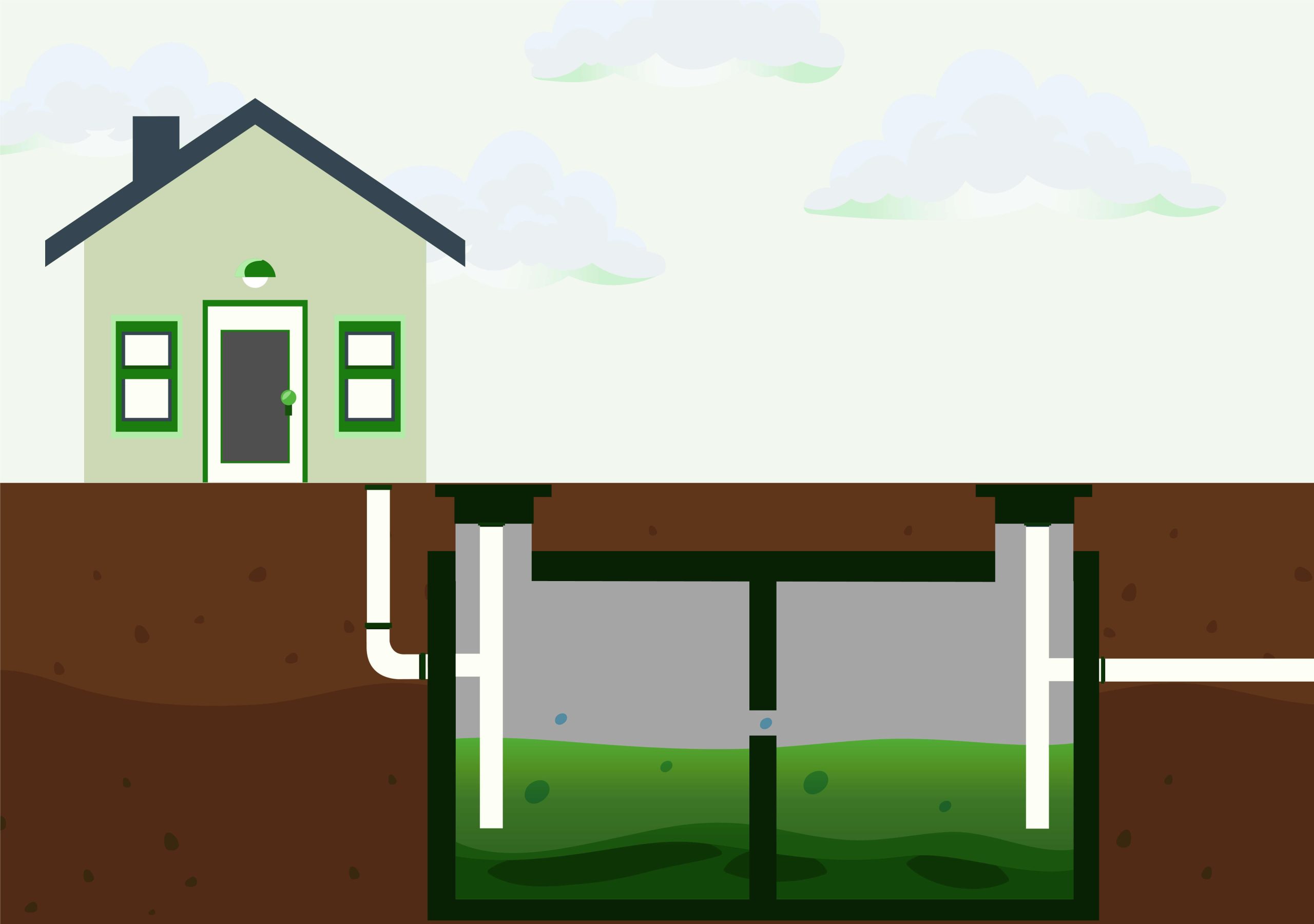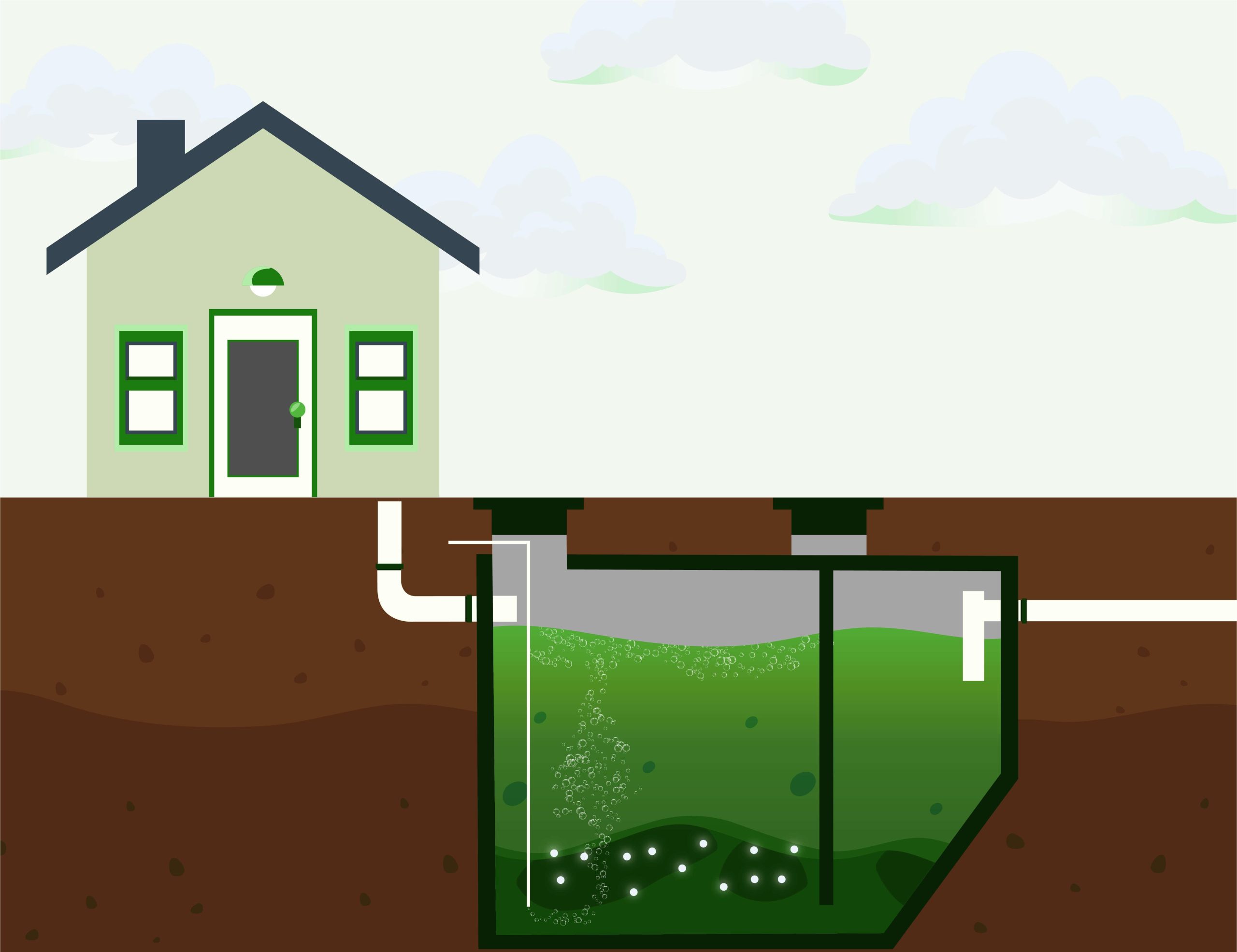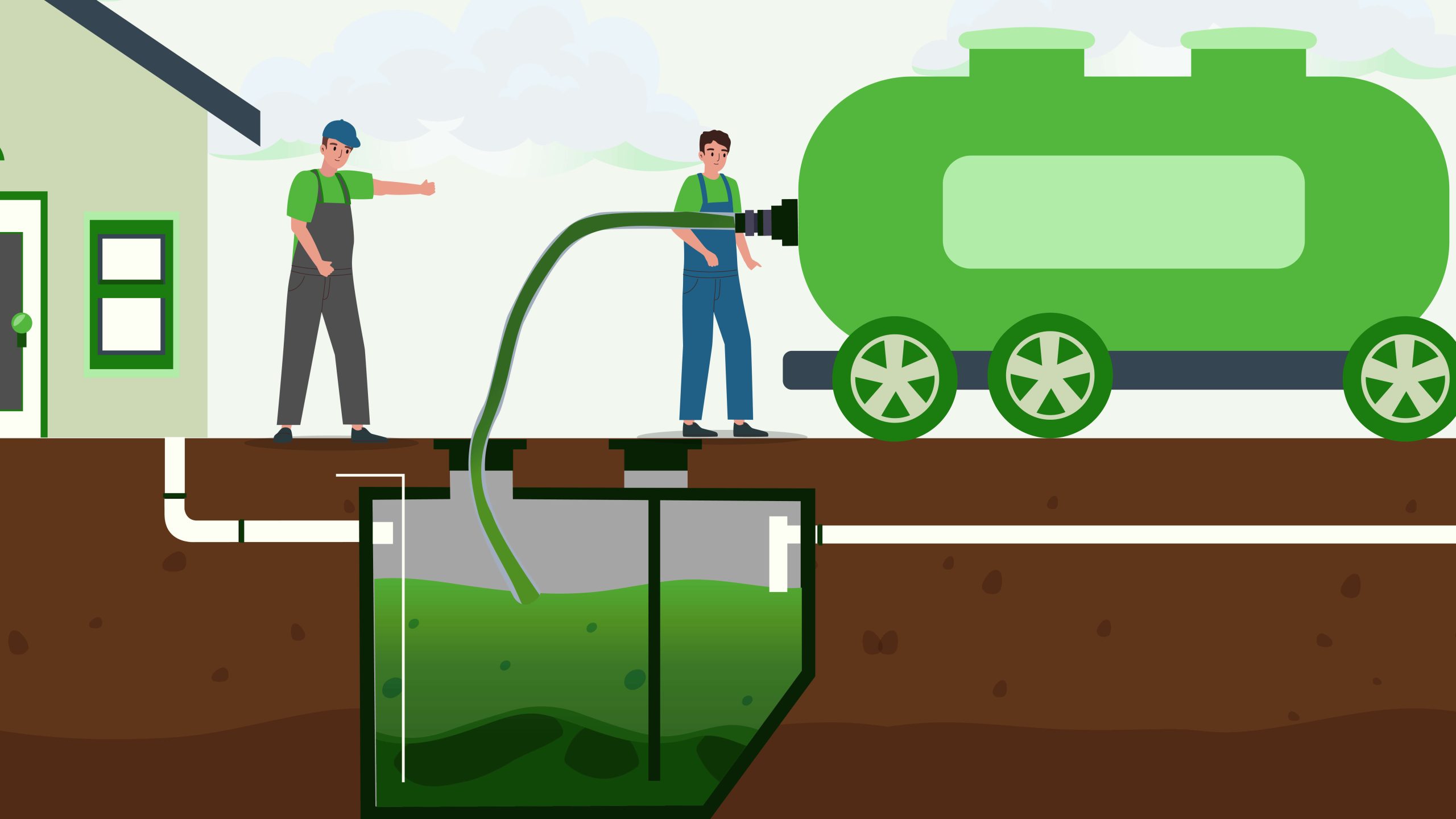Yes, tree roots can damage sewer lines. They grow toward moisture and can enter small cracks or joints in pipes. Over time, this causes clogs, leaks, and even pipe breaks. Regular inspections and maintenance help prevent costly repairs.

- Professional Sewer Service
Trusted Septic & Sewer Company in Louisiana
Septic & Sewer Company in Louisiana Sewer Solutions Louisiana is your go-to provider for expert sewer and septic services across the state. Whether you need septic tank inspection, grease trap pumping, or lift station maintenance, our licensed team delivers professional results built to last — from New Orleans to Shreveport and everywhere in between.
Our clients trust us for quality workmanship, fair pricing, and services that actually solve problems — not patch them. With us, you’ll never be left waiting. We’re open now, and our team offers online estimates for your convenience. Our commitment to excellence has made us a top rated choice for both residential and commercial customers.
REQUEST A FREE QUOTE
Full-Service Sewer & Septic Installation Across Louisiana
Installing septic and sewer systems in Louisiana requires local expertise — and that’s exactly what Sewer Solutions Louisiana delivers. We’ve installed thousands of systems that meet local codes and stand up to the state’s challenging climate. Whether you’re replacing outdated equipment or starting from scratch, we make sure everything runs smoothly — and stays that way.
We handle:
- Sewer Installation with precision, proper slope, and long-lasting materials
- Septic Tank Pumping to remove waste before it becomes a problem
- Trenchless Sewer Replacement for fast, non-invasive upgrades
- Sewer Maintenance services that catch issues before they get worse
- Aerobic Treatment Unit (ATU) systems for properties not on city sewer
Our team also assists with permits, inspections, and local compliance, making the entire process easier for you.
Understand Your Sewer System And Its Needs
Septic and sewer services should help you understand your system — not overwhelm you with technical jargon. Our technicians take the time to explain how your installation works, when to schedule cleanings, and how to prevent backups with regular sewer cleaning and inspections.

Conventional Septic Tank

Aerobic Treatment Unit

How A Pumpout Works

Wastewater Dispersal Methods After Treatment
Serving Local Communities Throughout Louisiana
Our crews are deeply rooted in every region we serve. From the historic homes of Baton Rouge to the bayou properties of Houma, we understand the unique sewer and septic challenges each area presents. That’s why clients in places like Broadmoor, Gentilly, and Lake Charles turn to us first.
With crews stationed near interstates like I-10 and I-20, we can quickly dispatch professionals wherever you are — even in rural parishes. Whether you’re across from the Shell gas station on Hwy 165 or near the courthouse in Ville Platte, we’ve got your back. And yes, we’re among the cheapest professional options that don’t sacrifice quality.
TESTIMONIALS
our client feedback & best review for us.
Sarah M
I had a major sewer backup and needed urgent help. The team arrived quickly, diagnosed the issue, and had it fixed in no time. Super professional and explained everything clearly. Highly recommend their sewer services!
James R
They didn’t try to upsell me or scare me into unnecessary repairs. Gave a fair quote and stuck to it. You can tell they care about doing the job right. Trustworthy sewer repair company!
Tina H
We had a sewer line break late at night and they were the only company available. They showed up promptly, handled the mess with care, and got everything flowing again. Excellent 24/7 service.
Mark D
From the moment I called, the staff was courteous and informative. The techs were respectful of my property and cleaned up after the job. You wouldn’t even know they were here – except the sewer works perfectly now!
Frequently Asked Questions
Find answers to our most commonly asked questions, from our services and pricing to the benefits of working with us. For more assistance, feel free to reach out to our team!
What are common signs of a sewer line problem?
Slow drains, gurgling sounds, foul odors, and sewage backups are common warning signs.
How often should sewer lines be inspected?
Yes, tree roots can invade and crack sewer pipes, causing blockages and leaks.
What is trenchless sewer repair?
It’s a no-dig method to fix or replace pipes without major excavation, saving time and landscaping.
Areas We Serve In Louisiana
Acadia Parish
- Branch
- Church Point
- Crowley
- Egan
- Estherwood
- Iota
- Mermentau
- Morse
- Rayne
Allen Parish
- Elizabeth
- Kinder
- Oakdale
- Oberlin
- Reeves
Ascension Parish
- Donaldsonville
- Gonzales
- Lemannville
- Prairieville
- Sorrento
Assumption Parish
- Bayou Corne
- Bayou L’Ours
- Belle Ros
- Labadievill
- Napoleonvill
- Paincourtvill
- Pierre Par
- Supreme
Avoyelles Parish
- Bordelonville
- Bunkie
- Center Point
- Cottonport
- Evergreen
- Fifth Ward
- Hessmer
- Mansura
- Marksville
- Moreauville
- Plaucheville
- Simmesport
Beauregard Parish
- DeRidder
- Longville
- Merryville
- Oretta
- Singer
- Sugartown
Bienville Parish
- Arcadia
- Bienville
- Bryceland
- Castor
- Gibsland
- Jamestown
- Lucky
- Mount Lebanon
- Ringgold
- Saline
Bossier Parish
- Benton
- Bossier City
- Eastwood
- Haughton
- Plain Dealing
- Red Chute
Caddo Parish
- Belcher
- Blanchard
- Gilliam
- Greenwood
- Hosston
- Ida
- Lakeview
- Mooringsport
- Oil City
- Rodessa
- Shreveport
- Vivian
Calcasieu Parish
- Carlyss
- DeQuincy
- Gillis
- Hayes
- Iowa
- Lake Charles
- Moss Bluff
- Prien
- Starks
- Sulphur
- Vinton
- Westlake
Caldwell Parish
- Banks Springs
- Clarks
- Columbia
- Grayson
Cameron Parish
- Harrisonburg
- Jonesville
- Sicily Island
- Wallace Ridge
Catahoula Parish
- Harrisonburg
- Jonesville
- Sicily Island
- Wallace Ridge
Claiborne Parish
- Athens
- Haynesville
- Homer
- Lisbon
Concordia Parish
- Clayton
- Ferriday
- Minorca
- Monterey
- Ridgecrest
- Spokane
- Vidalia
De Soto Parish
- Frierson
- Gloster
- Grand Cane
- Keachi
- Logansport
- Longstreet
- Mansfield
- South Mansfield
- Stanley
- Stonewall
East Baton Rouge Parish
- Baker
- Baton Rouge
- Brownfields
- Central
- Gardere
- Inniswold
- Merrydale
- Monticello
- Oak Hills Place
- Old Jefferson
- Shenandoah
- Village St. George
- Westminster
- Zachary
East Carroll Parish
- Lake Providence
East Feliciana Parish
- Clinton
- Jackson
- Norwood
- Slaughter
- Wilson
Evangeline Parish
- Basile
- Chataignier
- Mamou
- Pine Prairie
- Reddell
- Turkey Creek
- Ville Platte
Franklin Parish
- Baskin
- Gilbert
- Winnsboro
- Wisner
Grant Parish
- Colfax
- Creola
- Dry Prong
- Georgetown
- Montgomery
- Pollock
- Prospect
- Rock Hill
Iberia Parish
- Delcambre
- JeaneretteLoreauville
- Lydia
- New Iberia
Iberville Parish
- Bayou Goula
- Crescent
- Grosse Tete
- Maringouin
- Plaquemine
- Rosedale
- St. Gabriel
- White Castle
Jackson Parish
- Chatham
- East Hodge
- Eros
- Hodge
- Jonesboro
- North Hodge
- Quitman
Jefferson Davis Parish
- Elton
- Fenton
- Jennings
- Lacassine
- Lake Arthur
- Roanoke
- Welsh
Jefferson Parish
- Avondale
- Barataria
- Bridge City
- Elmwood
- Estelle
- Grand Isle
- Gretna
- Harahan
- Harvey
- Jean Lafitte
- Jefferson
- Kenner
- Lafitte
- Marrero
- Metairie
- River Ridge
- Terrytown
- Timberlane
- Waggaman
- Westwego
- Woodmere
La Salle Parish Parish
- Jena
- MidwayOlla
- Tullos
- Urania
Lafayette Parish
- Broussard
- Carencro
- Duson
- Lafayette
- Milton
- Ossun
- Scott
- Youngsville
Lafourche Parish
- Bayou Blue
- Bayou Country Club
- Chackbay
- Choctaw
- Cut OffGalliano
- Golden Meadow
- Kraemer
- Lafourche Crossing
- Larose
- Lockport
- Lockport Heights
- Mathews
- Raceland
- Thibodaux
Lincoln Parish
- Choudrant
- Dubach
- Grambling
- Ruston
- Simsboro
- Vienna
Livingston Parish
- Albany
- Denham Springs
- French Settlement
- Killian
- Livingston
- Port Vincent
- Springfield
- Walker
- Watson
Madison Parish
- Delta
- Mound
- Richmond
- Tallulah
Morehouse Parish
- Bastrop
- Bonita
- Collinston
- Mer Rouge
- Oak Ridge
Natchitoches Parish
- Ashland
- Campti
- Clarence
- Goldonna
- Natchez
- Natchitoches
- Point Place
- Powhatan
- Provencal
- Robeline
- Vienna Bend
Orleans Parish
- New Orleans
Ouachita Parish
- Bawcomville
- Brownsville
- CalhounClaiborne
- Lakeshore
- Monroe
- Richwood
- Sterlington
- Swartz
- West Monroe
Plaquemines Parish
- Belle Chasse
- Boothville
- Buras
- Empire
- Pointe a la Hache
- Port Sulphur
- Triumph
- Venice
Pointe Coupee Parish
- Fordoche
- Livonia
- Morganza
- New Roads
- Ventress
Rapides Parish
- Alexandria
- Ball
- Boyce
- Cheneyville
- DevilleForest Hill
- Glenmora
- Lecompte
- McNary
- Pineville
- Woodworth
Red River Parish
- Coushatta
- Edgefield
- Hall Summit
- Martin
Richland Parish
- Delhi
- Mangham
- Rayville
- Start
Sabine Parish
- Belmont
- Converse
- Fisher
- Florien
- Fort Jesup
- Many
- Noble
- Pleasant Hill
- Zwolle
St. Bernard Parish
- Arabi
- Chalmette
- Meraux
- Poydras
- Violet
St. Charles Parish
- Ama
- Bayou Gauche
- BoutteDes Allemands
- Destrehan
- Hahnville
- Killona
- Luling
- Montz
- New Sarpy
- Norco
- Paradis
- St. Rose
- Taft
St. Helena Parish
- Greensburg
- Montpelier
St. James Parish
- Convent
- Gramercy
- Grand Point
- Hester
- Lutcher
- Moonshine
- North Vacherie
- Paulina
- Romeville
- South Vacherie
- St. James
- Union
- Welcome
St. John the Baptist Parish
- Edgard
- Garyville
- Laplace
- Pleasure Bend
- Reserve
- Wallace
St. Landry Parish
- Arnaudville
- Cankton
- Eunice
- Grand Coteau
- Krotz Springs
- Lawtell
- Leonville
- Melville
- Opelousas
- Palmetto
- Port Barre
- Sunset
- Washington
St. Martin Parish
- Breaux Bridge
- Cade
- Catahoula
- Cecilia
- Henderson
- Parks
- St. Martinville
St. Mary Parish
- Amelia
- Baldwin
- Bayou Vista
- Berwick
- Charenton
- Franklin
- Glencoe
- Morgan City
- Patterson
- Siracusaville
- Sorrel
St. Tammany Parish
- Abita Springs
- Covington
- Eden Isle
- Folsom
- Lacombe
- Madisonville
- Mandeville
- Pearl River
- Slidell
- Sun
Tangipahoa Parish
- Amite City
- Hammond
- Independence
- Kentwood
- Natalbany
- Ponchatoula
- Roseland
- Tangipahoa
- Tickfaw
Tensas Parish
- Newellton
- St. Joseph
- Waterproof
Terrebonne Parish
- Bayou Cane
- Bourg
- Chauvin
- Dulac
- Gray
- Houma
- Montegut
- Presquille
Union Parish
- Bernice
- Downsville
- Farmerville
- Junction City
- Lillie
- Marion
- Spearsville
Vermilion Parish
- Abbeville
- Erath
- Gueydan
- Kaplan
- Maurice
Vernon Parish
- Anacoco
- Fort Polk North
- Fort Polk South
- Hornbeck
- Leesville
- New Llano
- Pitkin
- Rosepine
- Simpson
Washington Parish
- Angie
- Bogalusa
- Franklinton
- Varnado
Webster Parish
- Cotton Valley
- Cullen
- Dixie Inn
- Doyline
- Dubberly
- Heflin
- Minden
- Sarepta
West Baton Rouge Parish
- Addis
- Brusly
- Erwinville
- Port Allen
West Carroll Parish
- Epps
- Forest
- Kilbourne
- Oak Grove
- Pioneer
West Feliciana Parish
- St. Francisville
Winn Parish
- Atlanta
- Calvin
- Dodson
- Jordan Hill
- Joyce
- Sikes
- St. Maurice
- Winnfield

Discover Louisiana – Our Home, Your Community
We Love Louisiana.
Nicknamed the Pelican State, Louisiana is a rich and vibrant region located in the Deep South. Bordered by Texas, Mississippi, and the Gulf of Mexico, it is a place known for its diversity, culture, and resilience.
Part of the Gulf Coast region, Louisiana is home to more than 4.6 million people and spans from the Red River to the Mississippi Delta. With 64 parishes instead of counties, Louisiana is a unique blend of French, Spanish, African, and American traditions. You’ll find us working everywhere from rural Acadiana to historic downtown Natchitoches.
Louisiana has a long and storied history, with cities like New Orleans founded as early as 1718. The state played a vital role in early trade along the Mississippi River and remains one of the most culturally rich regions in the United States. You’ll find traces of its past in every bayou, building, and street corner.
The climate is humid subtropical — long, hot summers and mild winters — making it ideal for outdoor lifestyles but also challenging for underground infrastructure. That’s why professional sewer and septic solutions are so critical here.
Top 3 Attractions in Louisiana
- French Quarter – New Orleans
Walk down Bourbon Street, explore centuries-old buildings, and enjoy world-class music, food, and culture in the heart of Louisiana’s most iconic city. - Atchafalaya Basin
The largest wetland and swamp in the U.S., this vast area of bayous, marshes, and wildlife is a natural wonder perfect for boating, fishing, and exploring Louisiana’s ecosystem.
Louisiana State Capitol – Baton Rouge
Towering at 450 feet, this is the tallest capitol building in the U.S. Tour the observation deck for panoramic views or explore the surrounding gardens and statues.
Local Pride, Statewide Service
Louisiana isn’t just where we work — it’s where we live. From crawfish boils to Cajun music, swamp tours to Saints games, Louisiana is a state with soul. And just like the people who call it home, our sewer installation company is built on grit, trust, and doing the job right the first time.
From bustling cities to bayou towns, Sewer Solutions Louisiana is proud to support the communities that make this state so special.
CONTACT US
Need any urgent help? hire us now!
225-243-9148
support@sewer.com
Location Address
Louisiana
REQUEST A FREE QUOTE


